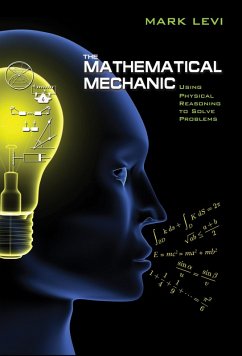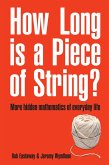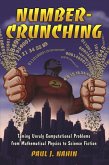Everybody knows that mathematics is indispensable to physics--imagine where we'd be today if Einstein and Newton didn't have the math to back up their ideas. But how many people realize that physics can be used to produce many astonishing and strikingly elegant solutions in mathematics? Mark Levi shows how in this delightful book, treating readers to a host of entertaining problems and mind-bending puzzlers that will amuse and inspire their inner physicist.
Levi turns math and physics upside down, revealing how physics can simplify proofs and lead to quicker solutions and new theorems, and how physical solutions can illustrate why results are true in ways lengthy mathematical calculations never can. Did you know it's possible to derive the Pythagorean theorem by spinning a fish tank filled with water? Or that soap film holds the key to determining the cheapest container for a given volume? Or that the line of best fit for a data set can be found using a mechanical contraption made from a rod and springs? Levi demonstrates how to use physical intuition to solve these and other fascinating math problems. More than half the problems can be tackled by anyone with precalculus and basic geometry, while the more challenging problems require some calculus. This one-of-a-kind book explains physics and math concepts where needed, and includes an informative appendix of physical principles.
The Mathematical Mechanic will appeal to anyone interested in the little-known connections between mathematics and physics and how both endeavors relate to the world around us.
Levi turns math and physics upside down, revealing how physics can simplify proofs and lead to quicker solutions and new theorems, and how physical solutions can illustrate why results are true in ways lengthy mathematical calculations never can. Did you know it's possible to derive the Pythagorean theorem by spinning a fish tank filled with water? Or that soap film holds the key to determining the cheapest container for a given volume? Or that the line of best fit for a data set can be found using a mechanical contraption made from a rod and springs? Levi demonstrates how to use physical intuition to solve these and other fascinating math problems. More than half the problems can be tackled by anyone with precalculus and basic geometry, while the more challenging problems require some calculus. This one-of-a-kind book explains physics and math concepts where needed, and includes an informative appendix of physical principles.
The Mathematical Mechanic will appeal to anyone interested in the little-known connections between mathematics and physics and how both endeavors relate to the world around us.









